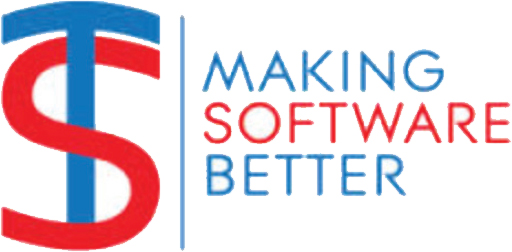Improving Software for Society
About the IAP
The Institution of Analysts and Programmers (IAP) is the leading specialist professional body for people working in any aspect of software development. Founded 50 years ago and operating as a registered charity, the Institution now has members in over 30 countries.
Practitioners join the Institution because they want to belong to a professional body that is Improving Software for Society. Our membership includes software engineers, web developers, business analysts and test engineers. We enable our members to work together to improve standards and learn from each other, to build professional networks and to shape the future of the profession in order to forge a better world.
Membership brings prestige and the opportunity to work in the public interest with top experts in our profession. It endorses our members’ professionalism, qualifications and experience, demonstrating to employers and clients alike their value in building a more trustworthy digital age. Membership also helps our members stand out from the crowd by evidencing their personal commitment to professional ethics and assuring their integrity to those who rely on their expertise.
Importantly, we also help those starting out in software by nurturing their professional development during the early stages of their career. We help them to develop solid foundations that will ensure that the next generation of software developers continue to strive for the very highest standards to underpin our growing digital economy.
Our Code of Conduct ensures high professional standards amongst our membership. The IAP is Improving Software for Society by working with its members and partners to raise standards amongst today’s software engineers and to educate tomorrow’s software developers to ensure the profession creates trustworthy software now and in the future.
Services to the Public
The Institution will try to help members of the public:
• seeking to enter the profession
• seeking technical assistance
• seeking information about the Institution or its members
Purpose, Vision & Mission
The IAP has a very clear purpose, an inspiring vision for its future and a solid understanding of its mission.
VISION
The vision for the IAP is to improve software for society by being the leading professional body for those aspiring to and engaged in creating, developing and maintaining software, with an international reputation for education, high standards and the calibre of its members.
MISSION
The mission of the IAP is to be the leading specialist professional body advancing software development, recognising the competence of those engaged in all aspects of it, and promoting the importance of trustworthy software to the public. We need to ensure that our members adhere to the highest professional standards, are committed to their own development and abide by their duty to serve the public interest in their work.
Our Aims and Objectives
The IAP was founded in 1972 and became established under its current name in 1981. The Institution was incorporated into a company limited by guarantee on 8th October 1992 and became a registered charity in 2018. The Institution’s Charitable Objects are defined in its Constitution as:
• to advance the science of the development of secure and carefully designed software and to promote public education therein;
• to advance the education of the public on the subject of software development and related disciplines as well as to promote greater understanding and appreciation of the impact of software on society for the public benefit.
In furthering its Objects, the Institution may:
• encourage and promote high standards of education, qualification, competence, leadership, management, knowledge and professionalism as well as high ethical standards amongst those involved in commissioning, developing, securing, installing, maintaining and testing software, adopting any lawful means conducive to maintaining the highest standards of professional skill and conduct amongst members of the Institution;
• facilitate the professional development of those engaged in developing software to improve the quality, trustworthiness and security of software for the public benefit;
• liaise with government departments and other bodies concerned with statutory or other qualifications, and with universities and other educational institutes and authorities in the furtherance of education and training in the development, trustworthiness, security, installation, maintenance and testing of software;
• facilitate the exchange and publication of information and ideas on the development, trustworthiness, security, installation, maintenance and testing of software, to encourage research therein and to publish the results thereof;
• promote and raise awareness within society about the need for high quality, trustworthy and secure software systems for the benefit of the public;
• promote and raise awareness of diversity and equality within the software development profession;
• promote, establish and support standards and codes of conduct, ethics and practice for the development, installation, maintenance and testing of software;
• invite, receive, hear and publish communications relating to the science, teaching, application or use of software and to grant prizes or other awards in respect of them;
• hold or supervise examinations and award certificates, diplomas, prizes, bursaries or scholarships either alone or jointly with other educational or professional bodies in relation to the development or use of software;
• prepare, print and publish criteria for the teaching of and training in software development and its related disciplines;
• confer, consult, communicate or collaborate with other scientific, professional, educational or technical bodies with a view to pursuing common objects in software development and related subjects as well as to represent the software development profession nationally and internationally;
• enable and encourage those engaged in or interested in software and its development to meet and correspond in order to exchange ideas and information on its science, practice, teaching, application and use.
The Importance of Professional Bodies
Professional bodies offer many advantages to those who can gain membership. One of the main benefits is that of recognition – the organisation assesses the candidate member, looking at experience, qualifications and competency and if they are suitable, awards a corresponding grade. There are six grades of membership: Student, Licentiate, Graduate (GradIAP), Associate Member (AMIAP), Member (MIAP) and Fellow (FIAP) – the most prestigious grade. For the member, this independently demonstrates their ability and they can use the post-nominals to draw attention to this.
A further benefit that many may overlook is the Code of Conduct which bodies have to ensure their members abide by strict principles and act in a professional manner. For members seeking work, this demonstrates to their clients that they are bound by the highest standards.
Members also benefit from being part of a community or network of like-minded professionals. Often organisations have symposia, meetings (now frequently online) and other events where diverse topics (such as new ideas and techniques) are discussed.
Amongst the many other benefits that professional bodies offer, career development and advice, as well as mentoring, are often part of the package that membership brings. Employers can see when recruiting a person who is already a member of a professional body, that they have a commitment to not just the job, but also the profession, they are employing someone who takes pride in what they do.
Our Constitution
The Institution of Analysts and Programmers was incorporated as a company limited by guarantee on 8th October 1992, under the Companies Act 1985. It was registered as a charity in England and Wales in 2018.
The company has no share share capital and operates on a not-for-profit basis. The guarantors of the company are its members (and those whose membership has ceased within the last twelve months). Each guarantor is liable to pay up to £1 sterling in the event of the Institution being wound up. The Institution is ultimately governed by its Memorandum and Articles of Association, which were last revised on 16th November 2017: Articles of Association.
The Trustee Board maintains Ordinances and Standing Orders, along with other regulations, that govern the operation of the body within the confines prescribed by its Articles of Association.
To join the IAP please complete the Application Form: join-the-iap.








